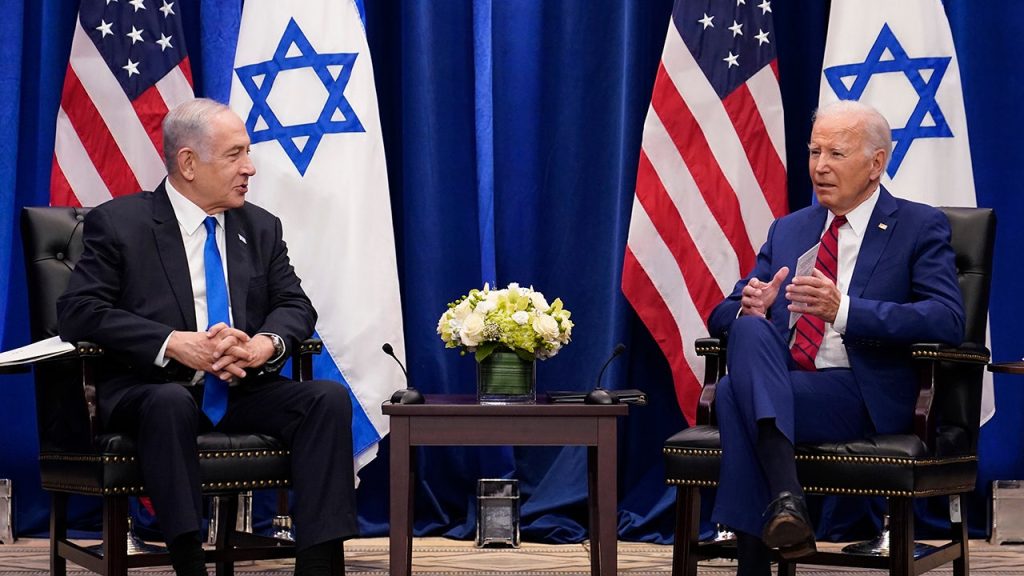The Biden administration’s decision to abstain from voting against a U.N. cease-fire resolution has sparked controversy, with Israeli officials and critics arguing that it represents a shift in policy. Despite the administration’s insistence that its support for Israel has not changed, Israeli Prime Minister Benjamin Netanyahu’s office described the move as a “clear withdrawal” from the U.S.’s position in the Security Council. Following the vote, the White House emphasized that the resolution is nonbinding, with no impact on Israel’s ability to continue targeting Hamas.
President Biden initially expressed unwavering support for Israel and Netanyahu in the aftermath of a Hamas attack on Southern Israel. However, as collateral casualties increased during Israel’s assault on Hamas, Biden seemed to dismiss early reported casualty numbers, questioning the accuracy of the figures released by the Gaza Health Ministry. Despite growing criticism of Israel’s actions and accusations of genocide by some nations, Biden remained firm in his support, praising Israel’s cooperation and commitment to a temporary cease-fire agreement with Hamas.
Reports indicated that Biden’s patience with Israel and Netanyahu started to wear thin as anti-Israel protests intensified, leading to a decline in the president’s approval ratings. Biden’s acknowledgment of voter frustrations over Israel’s actions was seen as a notable departure from his previous unconditional support. The president also faced criticism for his perceived lack of direct communication with Netanyahu and appeared to concede to pro-Palestinian protesters, acknowledging their concerns during multiple interruptions.
The ongoing dispute over Israel’s military operation in Rafah further strained the relationship between Biden and Netanyahu, leading to a lack of direct communication between the two leaders. Biden’s insistence on increasing humanitarian aid to Gaza and pressuring Israel to facilitate aid deliveries drew pushback from Israeli officials, who expressed concerns about aid falling into Hamas’ hands. The situation escalated after Biden was overheard discussing a “come-to-Jesus meeting” with Netanyahu, hinting at further tensions between the two leaders.
The Biden administration faced backlash for its decision to abstain from voting on the U.N. cease-fire resolution, with critics arguing that it signaled a departure from the U.S.’s longstanding support for Israel. Growing international opposition to Israel’s actions in Gaza, coupled with domestic protests and declining approval ratings, posed challenges for the administration’s handling of the conflict. Despite attempts to maintain diplomatic ties and communicate with Israeli officials, tensions between Biden and Netanyahu persisted, highlighting the complexity of the U.S.-Israel relationship.
Overall, the evolving dynamics between the Biden administration and Israel reflect the complexities of navigating the Israeli-Palestinian conflict and maintaining U.S. support for its longtime ally. As the situation in Gaza continues to unfold, the administration faces pressure to balance its commitment to Israel’s security with growing calls for humanitarian aid and a resolution to the conflict that addresses the needs of all parties involved. The ongoing rifts and challenges underscore the delicate diplomacy required to navigate the complexities of the Middle East region.


